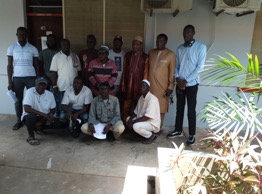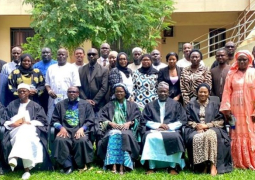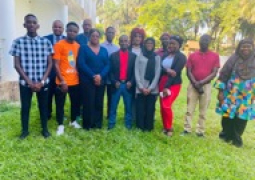
Speaking during a press conference on Saturday, held at Action Aid Building in Kanifing, he stated that the unfolding developments to curb unnecessary strikes, meet the immediate demands of the GTU by increasing fares without exhausting other possible options, and reaching an agreement with the CPC is a matter of concern.
Mr Jallow further explained that as key stakeholders and members of the Road Safety Working Group and Route Licencing Task Force Committee setup to improve the overall efficiency of the transport system, they believe the ministry’s resolve to increase transport fares before operationalising of the Route Licencing Scheme means “putting the cart before the horse.”
He added that the CPC strongly warns that instead of achieving fair play and stability, it would be a recipe for chaos in the transport sector.
“Considering the current economic conditions and rising inflation in this country, the CPC holds that any increment in fares will have a spiral effect on transportation, costs of essential commodity prices, resulting in inflation and further hardships for the citizenry.”
However, to help remedy the situation, he continued that the CPC has also identified potential areas of intervention that would require the collaboration of the government and other stakeholders for sensitisation of consumers on consumer rights and responsibilities, sensitisation of GTU and commercial drivers on social responsibility, and strengthening enforcement of traffic laws and regulations and the Consumer Protection Act 2014.
Omar Touray, President of The Gambia Transport, Agriculture, Food, and Industrial Workers Union (GTAFIWU), said all GTU members are consumers. He added that when they are given a vehicle by an employer, their family members remain consumers.
He recommended the labelling of all commercial vehicles in this country.
Kebba Ceesay of Foundation Gambia Incorporation (FGI), also emphasised that their mandate is to protect the consumers, adding that the tariff should be a fair balance between the consumers and concerned groups.





